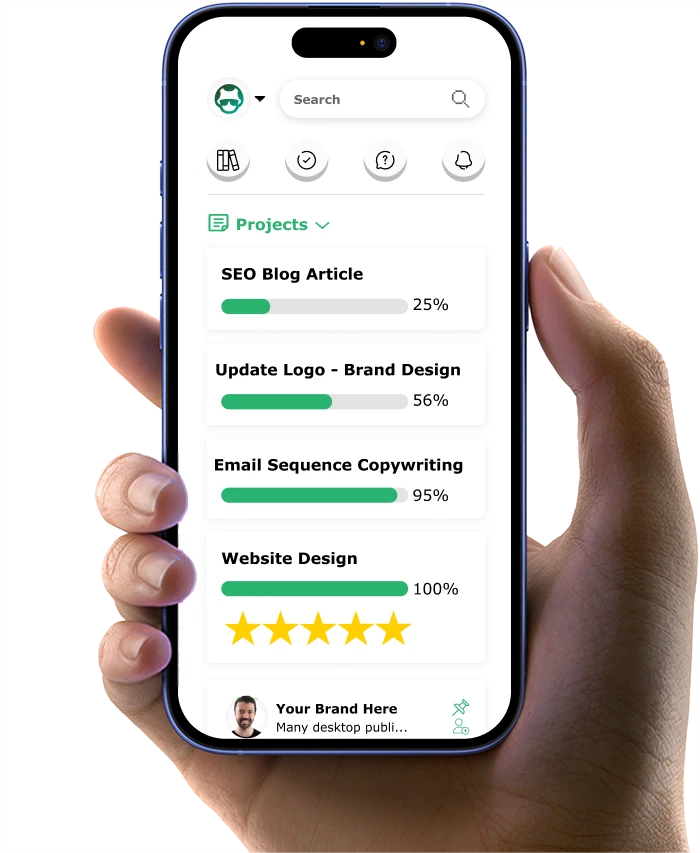This is How to Create Your 1st Quiz for B2C Leads
Quizzes are HOT.
In fact, BuzzSumo named them Content Marketing’s Secret Weapon.
Why?
People love to learn about themselves, love to share, and don’t mind leaving their answers and personal data in the process.
An online quiz is a playful way to share your content. It can activate your audience, and allows YOU to collect valuable insights about that same audience.
The fact that quizzes can also help you generate leads is a great bonus.
I’m sure you’ve seen them appear in your Facebook feed…
- “Discover your perfect holiday destination”
- “What kind of marketer are you? Take the test”
- “These dessert decisions will reveal a deep truth about you”
In this article, I’ll show you how you can build your very own B2C quiz and explain how they can be so effective in generating leads.
[wufoo username="petovera" formhash="mk4ftbi123y3rp" autoresize="true" height="259" header="show" ssl="true"]
Why you should use quizzes in your content
The most important reason to use quizzes in content marketing is to increase conversions your website. A conversion can be anything from a newsletter subscription to the purchase of a product, or even the registration to an online course.
The interactive aspect of a good quiz helps increase engagement of website visitors and stimulates conversions. This study by Demand Metric even proves that interactive content (like quizzes) manages to double the number of conversions compared to static content. (Like a regular signup form, for example.)
It’s because of trying new types of content (look at previous trends like infographics and video content), that you’re able to recapture the attention of your audience.
A quiz works in exactly the same way.
It’s because of the game-like elements that you find in quizzes that you’ll manage to capture and keep the attention of your website visitors more effectively.
Even with more mundane content, a quiz can stimulate users to playfully run through the topic without it becoming tedious. A great example of how a quiz can communicate more in-depth content is the “Know the Drill” quiz from the American Red Cross. The questionnaire is a playful way to raise awareness about fire safety and all the checks you need to do when an emergency arises.
Quizzes allow you to create a more personalized experience as well. They allow you to direct leads toward the most suitable product or service, or at least push them through to the next stage in your sales funnel. Brandeis University, for example, published a quiz that helps students choose their course of study.
Based on their quiz results, students get future career suggestions for their future careers are referred to the available courses that match their profile. With this nifty little quiz, the university manages to acquire no less than 125 new students a month!
Why quizzes for lead generation work
- People learn something about themselves
Secretly, everybody wants to figure out if they’re really a shopaholic or what type of home would best match their personality. Or, simple yet serious: What type of online course they should subscribe to, based on their current knowledge of digital marketing.
As human beings, we just like to learn that we’re good at something, or that we can be a part of something. It’s that self-serving bias that is perfectly answered by a quiz because it helps to categorize your audience. It offers someone a positive validation about themselves because the outcome is usually something they recognize themselves in.
- People learn something about you
The “Find your home”-quiz by Module housing illustrates this perfectly.
(Just to assure you, the quiz that I linked in the article is a shortened version that you can try. You can enter your email, but will not be contacted by Module Housing, or myself.)
Their quiz allows a potential client to answer a number of questions about their everyday life, as well as preferences on where and how they’d like to live. Based on the answers, the quiz generates a preview of the housing project that would be best suited for them.
Direct insights into your product offering, tailor-made for their needs!
Extra: A quiz like this one eliminates a lot of additional research and website browsing to find the product or service you need. This results in higher completion rates of the quiz and faster conversions.
- You learn a lot about them
An effective quiz will help you categorize your audience, allowing you to better service each lead on their level. In the meantime, you manage to collect their preferences: perfect to prepare your next sales-step.
That’s how Cloud Sherpas manages to collect around four hot leads a day via a quiz on their homepage. Hot leads are highly qualified leads that are more likely to convert. Firstly, these leads already indicate a certain interest in the company by taking their time to fill out the questionnaire. And secondly, because the quiz handles a niche-topic (“How mature is your ServiceNow instance?”), Cloud Sherpas can categorize their respondents and their needs based on their knowledge of the service.
How to make your first quiz
With current existing tools, there really is no excuse for boring surveys or quizzes. You’ll find tons of useful features and interactivity elements in most available quiz softwares.
When you start building your first quiz, keep these tips in mind:
- Choose a quiz type
There are many kinds of quizzes, but to generate leads, you’d do best to stick to either a personality quiz or a knowledge quiz.
A personality quiz is the most popular format and one that you can find inspiration for almost anywhere on the web. The basic setup is that the quiz asks you a number of questions and you get a specific outcome as a result, categorizing you into a certain personality trait.
The knowledge quiz can often be found on Facebook when respondents are sharing their results. The setup here is that, based on their answers, respondents will receive a score on how much they know instead of an outcome.
- Spend extra time on design and a title
Because: first impressions. Right?
In design, it’s important that your quiz matches your brand or at least the page it is on, making clear that this is an additional piece of content for your company. Make sure that design elements don’t take the attention away of the quiz questions.
Luckily, if you’re not a layout mastermind, lots of quiz tools offer readymade templates that you can adapt to your preferences.
The title is your hook, the one-liner that should make people curious about taking the quiz. You can either opt for a title with a pun that only teases the content, or one that is simply short and to the point.
Pitch a couple of ideas to a coworker, your partner, or even a friend to get some honest feedback and finetune your copy.
- Communicate for which purpose you will use the data collected
Caused by the news about the misuse of data collected through Facebook Quizzes, people have become more prudent to participate in quizzes.
Therefore, it is important to clearly state for which purposes you will use the data collected through the quiz. In our experience, the following information is important to mention:
- People can opt-out from your communication at any time
- That you will use the data for internal purposes only (“to deliver a better service”) and not share with third parties – only if this is the case, of course
- The (hopefully) trusted organization responsible for organizing the quiz
- Add multimedia and “human” elements
Images, GIFs, or even an explanatory video can support your questions and make the experience go by “faster” while it stays fun.
There is a time and place for funny GIFs or playful use of language, but there is always room for a human approach. Make sure that whatever content you add to your quiz is relatable to your target audience.
- Write conversationally
Especially in this scenario where you can ask questions and get answers from your audience, it’s important to keep it short and fun. It’s the digital version of going out on the street and starting a conversation with a prospect.
The first three questions are most important to grab the user’s attention. If people love those first questions, then you can be sure they are hooked and will finish the quiz. The last question of the quiz should be the cherry on top, so make it a special one.
Interactive features like question logic allow you to show follow up questions based on a previously given response, making the experience feel more personal.
Extra: Something as simple as an interjection works really well in a quiz setting and livens up the questions straight away.
- Use different question types
This keeps them on their toes! It also helps you avoid users automatically clicking random answers after a short while. Asking a multiple-choice question with four similar answer options five times in a row will quickly become tedious.
By alternating between multiple choice questions, picture choice, movable scales, and even emoji questions, you’ll hold on to the attention of your user for much longer.
That covers the basics!
How to make your first quiz generate leads
One important item that’s missing from the list above is the spot where you catch leads with your quiz.
A simple form, limited to only the bare necessities of data that you need, will do the trick. You should consider the exact placement of this form.
- At the beginning of your quiz
Honest and straightforward, but might take away from spontaneity of your quiz and decrease the initial click-through rate. On the other hand, people that DO leave their email before they get started know what they’re in for and are much more likely to finish the entire quiz.
- After the questions, but before the results
This “unlocking” approach has the highest chances of getting the email, but might also cause the most frustration. People have already taken the entire quiz and are now anxious to see the results. If the promise of the outcome is valuable enough, users won’t mind leaving their contact data. You can soften the blow by shortly mentioning this in your introduction screen. This approach can prevent scaring them away by actually showing a form from the start.
- After the results
While this is the friendliest approach, it’s also the one with the highest risk of you not getting the email you need. The ideal approach here is to show them a shortened version of the results and promise them a personalized report, more insights, or extra benefits when they leave an email address.
Like I mentioned earlier, even if you ask for the bare minimum, you should communicate what you’ll do with the collected data after the quiz. Let people know if they’ll be subscribed to your newsletter or if they’ll be contacted by a sales rep.
Bonus tip: Give something in return
It doesn’t take much to make your content more valuable for your readers. A gift doesn’t have to have a monetary value. Think discount coupons, specific insights based on the quiz results, or access to super special VIP content.
Take another look at the Module housing mentioned earlier in the article. At the end of the quiz, you discover what type of house is best suited for your needs. But via email, every potential client will also receive an entire report with valuable insights, price indications, visuals, and much more. This is all without having to go to a Module salespoint or strike up a conversation with a sales representative.
By convincing your audience that they are getting the better end of the deal in this quiz, you’ll more easily convince them to leave their contact data.
The quiz is only the beginning
After you’ve collected your leads, make sure that you keep the conversation going and that you make use of the data effectively.
Whether you follow up personally, send an automated email with additional info, or perhaps an entire personalized PDF report based on their answers, you’ve collected some incredible insights into their needs, so use them!
B2C quizzes are the perfect tool to repurpose existing content in an interactive way, to distribute information more efficiently, and to collect lots and lots of new leads!
Looking for more ways to convert your customers? Get started with the 11-Point Perfect Sales Funnel Checklist.
Stefan Debois is the founder and CEO of Survey Anyplace, an online software that helps you build engaging surveys, quizzes, and assessments. Stefan is passionate about the potential of technology to have meaningful online interactions with people – at scale.























